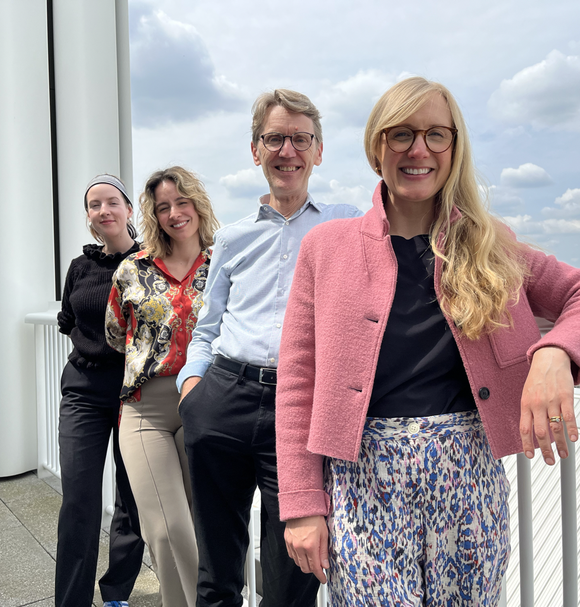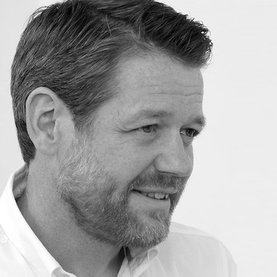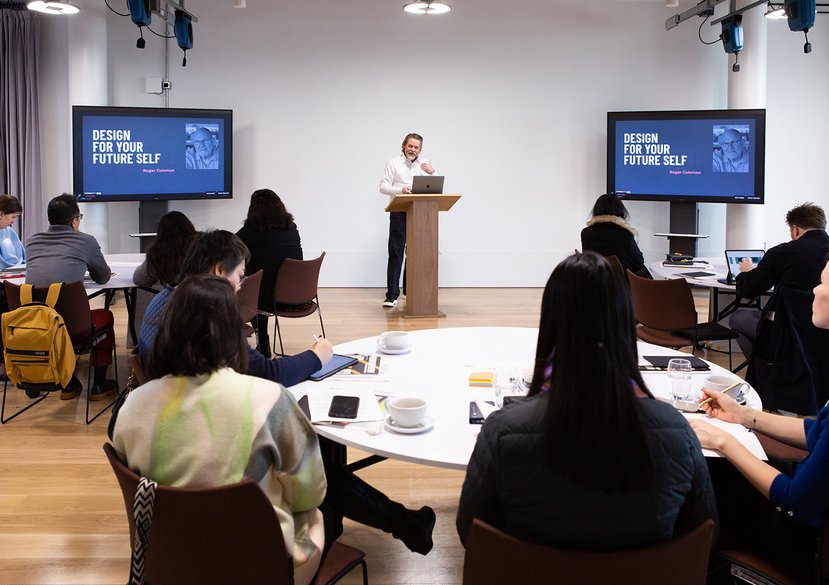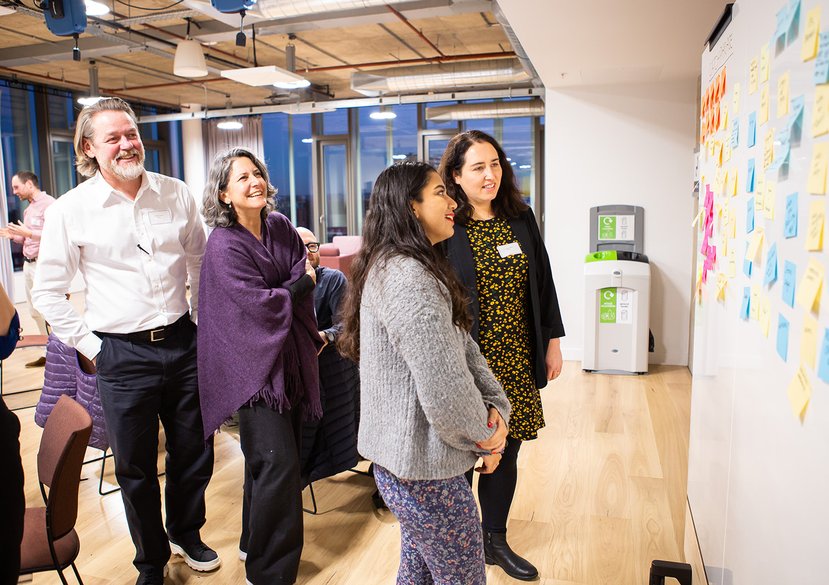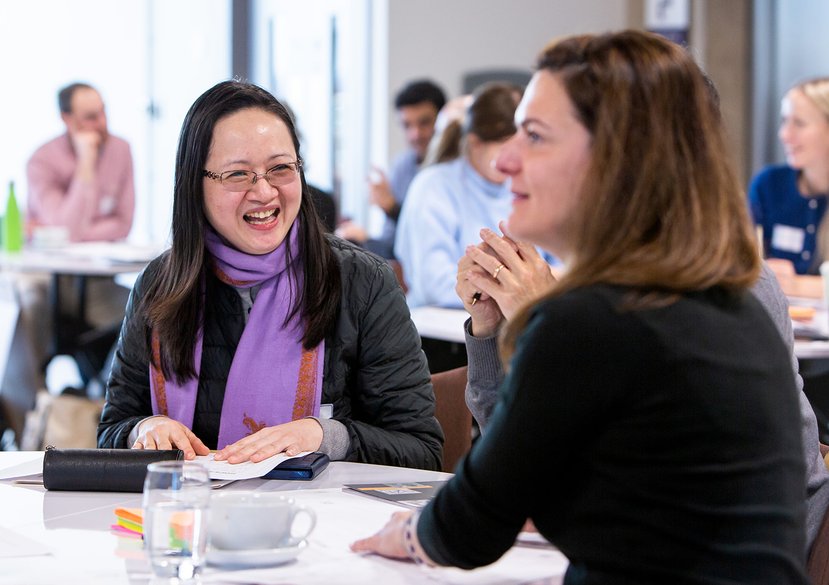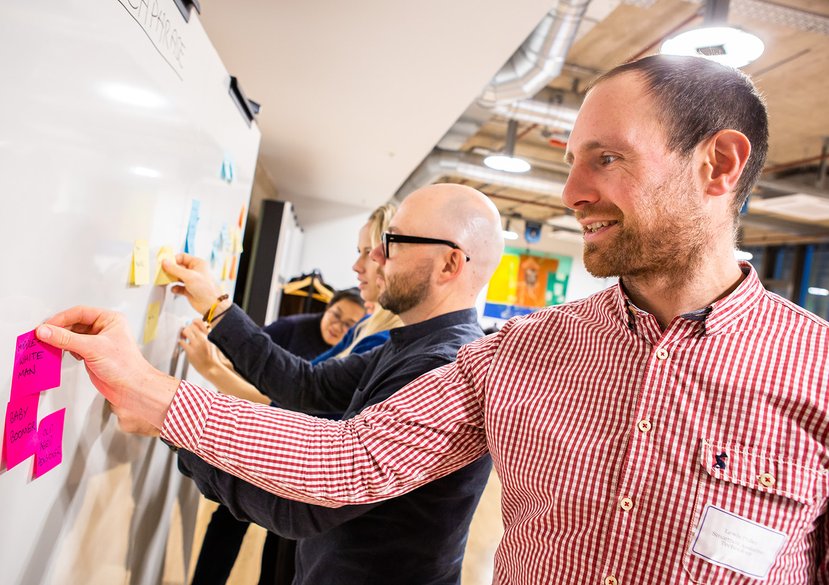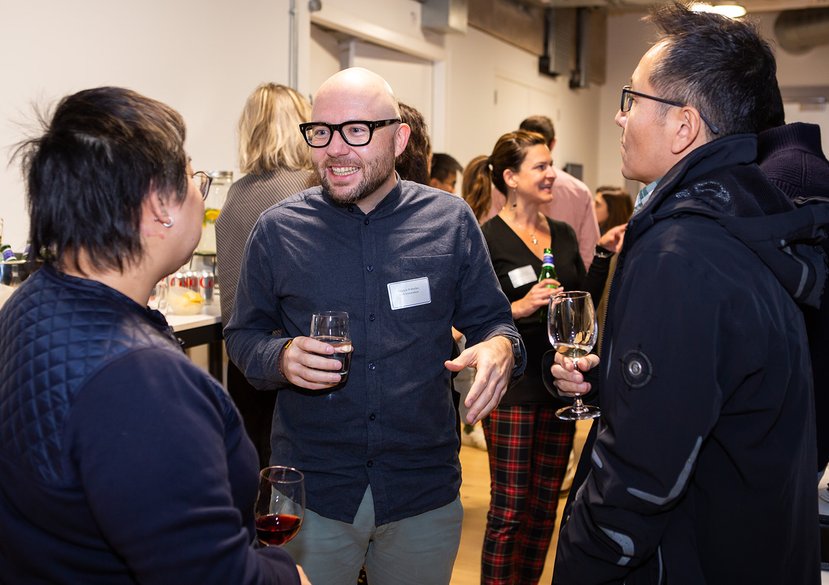
Learn innovative methodologies and frameworks to better understand older adults and how to design suitable services, products and environments for them at this online masterclass led by Colum Lowe, Director of Design Age Institute.
Key details
The UK's population is ageing, and this older population is holding an ever increasing percentage of national assets and household spend. So, why are so few organisations - public, private and charitable - designing for what older adults want, rather than what they're perceived to need?
In the EU, people aged 50 plus consumed €3.7 trillion worth of goods and services in 2015, this is projected to rise to €5.7 trillion by 2025. Over 50s already hold 70% of all household wealth in the UK but by 2040 over 55’s will account for 63p in every pound spent. Designing for this market not only makes moral sense, but also commercial sense.
The professional development masterclass aims to provide a unique insight into the ageing marketplace, looking at how to design products, services and experiences that are not limited by the pervasive medical discourse of ageing as decline, frailty and burden.
Using design thinking and innovation frameworks we will cover:
- an insight into the demographics of an ageing population
- an exploration of behaviour and purchase motivation as we age
- the basics of action psychology
- the role of design in creating healthier, happier lives for all of us as we age
*Please note this course is not an introduction to design thinking and will not train attendees on design processes.
This professional development masterclass is led by Colum Lowe, Director of Design Age Institute and RCA Honorary Fellow.
2023 guest speakers included Dr Anthony Howarth from Oxford University’s Institute of Population Ageing, Dr. Vivien Burrows from the International Longevity Centre UK, Carly Dickson from Arup, and Dr Dilip V. Jeste, Author of Wiser: The Scientific Roots of Wisdom, Compassion, and What Makes Us Good.
A small number of subsidised places are available for those working in the public and charitable sectors. If you would like to discuss, please contact us at [email protected].
Want to learn more?
Colum Lowe explains how the masterclass will introduce participants to both the challenges and opportunities of designing for and with an ageing population in this RCA news story.
About the course
Why now?
By 2050 the global population of those 65 years and above is estimated to double from 727 million to 1.5 billion. We are expected not only to live longer lives, but also more diverse lives requiring designers, manufacturers, and service providers to reconsider how they target and support this market segment.
This growth in the ageing population has created national concern about the ongoing affordability of care services and increased pressure on the NHS, but if industry developed products and services that people actually wanted, that helped them stay healthier and happier for longer, this would not necessarily be the case.
Course structure
Session 1 - Demography and Ageing
Discover the makeup of the ageing economy in terms of demographics, psychographics and purchase behaviours. Dig into the latest research from Oxford University’s Institute for Population Ageing.
Session 2 - Being User Centred
Understand the important role design can play in solving some of the common problems of ageing, and also its role in exacerbating them, by taking a human centred, inclusive design approach and considering how to design for your future self.
Session 3 - Healthy Ageing Innovation
Explore the barriers that prevent potentially valuable health benefiting products, services and activities either getting to market or being adopted by their intended audiences.
Personal and organisational benefits
The benefits to you and your organisation include:
- access to global best practice
- a deeper understanding of both the demographics and psychographics of ageing and how this impacts the longevity economy
- empathic understanding of older adult users/customers and be ready to start ‘designing for your future self’
- return to your organisation with innovative new techniques and strategies to put into practice
- experience critical, creative and insightful thinking
- interact and network with peers from different backgrounds and functions
- a certificate of attendance.
What will you learn?
You will learn:
- how to apply innovation methodology and frameworks to create better customer products, services and experiences
- real world applications of innovation and how it is transforming organisations
- creative design techniques.
How will you learn?
Learning takes place online over 3 x 3.5hr sessions.
The course includes:
- lectures and guest talks
- team workshops
- feedback from facilitators
- resources, e.g. journal articles, videos and case studies
Course outcomes
You will come away from this course with:
- a deep insight of the ageing economy
- an understanding of age inclusive design
- a framework to understanding the innovation process
- a tool to evaluate good and bad design
Who should attend?
Anyone interested in developing an empathy for older adults and exploring age inclusive design thinking techniques and principles.
From the public sector
- Directors of customer experience
- Service design leads
- Service planners and commissioners
- Transformation Leads
From industry
- Executive Directors
- Marketers
- R&D Leads
- Healthy ageing entrepreneurs and innovators
From education
- Incubator Directors
- Accelerator Directors
- Course leaders
- Students or graduates
Online Delivery
The course is organised in synchronous sessions in a live virtual environment that combines various digital platforms and tools.
Zoom
Using the videoconferencing service Zoom, the RCA's esteemed academics and facilitators deliver a mix of:
- live lectures
- case studies
- guided assessments
- presentations
Participants interact with the faculty and peers in breakout rooms in real time.
Miro
Participants engage in cross-functional team work with the use of visual collaboration tools.
Through the online whiteboard platform Miro, participants get to:
- interact with various formats and templates
- plan and brainstorm ideas
- create processes and workshop activities in the digital workspace.
Moodle
The College's learning platform Moodle is personalised according to the course's requirements to provide participants with a secure integrated system where they can access the course content.
The hub hosts a range of useful resources to enable the learning experience, including comprehensive timetables, pre-reading materials, course slides, curated videos, tutorials and session recordings.
Slack
Participants stay connected and communicate via the channel-based messaging platform Slack throughout the whole duration of the course.
In this space, the academics, facilitators and delegates get to network, plan the course activities, share documents and files during the live sessions or offline.
Course contributors
The course contributors for the 2023 programme were:
Dr. Vivien Burrows, Senior Research Fellow, International Longevity Centre

-
Carly Dickson, Access Consultant, Arup

-
Dr. Anthony Howarth, Research Fellow, Institute of Population Ageing

Tracy Sharp, Senior Design Manager, Design Age Institute

-
Dr. Dilip V. Jeste, Author of Wiser: The Scientific Roots of Wisdom, Compassion, and What Makes Us Good

Design Age Institute
Design Age Institute is the UK’s national strategic unit for design and the healthy ageing economy. We bring together designers, businesses, researchers and communities to help address the challenges and opportunities of an ageing society.
At Design Age Institute, we teach design thinking for an ageing population, training leaders from the public, private and charitable sectors who need to innovate within their organisations. In contrast to standard, linear approaches that build on tested models, design thinking is creatively structured, analytic and responsive. It draws in diverse disciplines and multiple areas of expertise and exploration, starting with the core premise that everything is a design problem.
Gallery
Contact us
Get in touch with Jo Chounta if you'd like to find out more about this or any of our other short courses.
[email protected]
